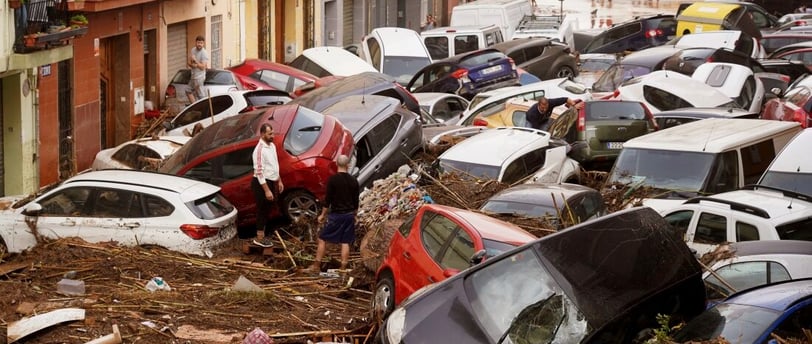How Extreme Weather in Spain's Valencia Region is Disrupting European Supply Chains
The recent extreme weather events in Spain’s Valencia region have sent shockwaves throughout Europe. With rail and port operations being hit hard, the ripple effects have severely disrupted key supply chains across the continent. Industries that rely heavily on the timely delivery of goods, such as automotive, electronics, and fresh produce, are feeling the strain like never before
10/31/20241 min read


Introduction
The recent extreme weather events in Spain’s Valencia region have sent shockwaves throughout Europe. With rail and port operations being hit hard, the ripple effects have severely disrupted key supply chains across the continent. Industries that rely heavily on the timely delivery of goods, such as automotive, electronics, and fresh produce, are feeling the strain like never before.
Impact on Key Industries
As logistics suffer due to these extreme weather conditions, businesses are struggling to maintain their inventory levels. The automotive industry, already facing challenges from semiconductor shortages, now finds itself grappling with delayed shipments of crucial components. Meanwhile, electronics manufacturers are also affected, facing backlogged deliveries as shipping routes remain inaccessible. The fresh produce sector is not spared either, with perishable goods risking spoilage due to halted transportation.
Adapting to Climate-Related Challenges
In light of the current disruptions, companies have begun adopting various strategies to safeguard their supply chains. One such tactic is diversifying suppliers to minimize dependency on any single region. Businesses are also exploring alternative logistics routes and utilizing technology to better forecast weather patterns. By staying ahead of potential climate-related disruptions, companies can effectively mitigate the impact of extreme weather on their supply chains.
Conclusion
The extreme weather hitting Spain's Valencia region highlights the urgent need for businesses to reassess and strengthen their supply chain strategies. As climate change continues to pose a threat to logistics globally, proactive measures must be prioritized to ensure the smooth flow of essential goods. The recent events serve as a potent reminder of the uncertainties the future holds, emphasizing the importance of adaptability in an ever-changing environment.
